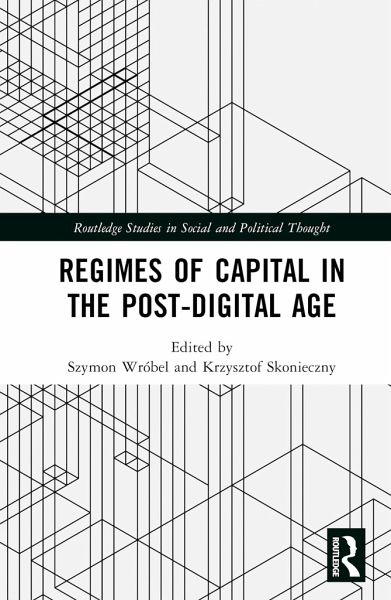
Regimes of Capital in the Post-Digital Age
Versandkostenfrei!
Versandfertig in 1-2 Wochen
171,99 €
inkl. MwSt.
Weitere Ausgaben:

PAYBACK Punkte
86 °P sammeln!
This book examines the current state of capitalism in relation to the advance of ICTs, considering the ways in which the rise of the internet has shaped capitalism - or otherwise - and the implications of our increasingly digital society for social capital and the possible forms of resistance to the problematic aspects of capitalism.














